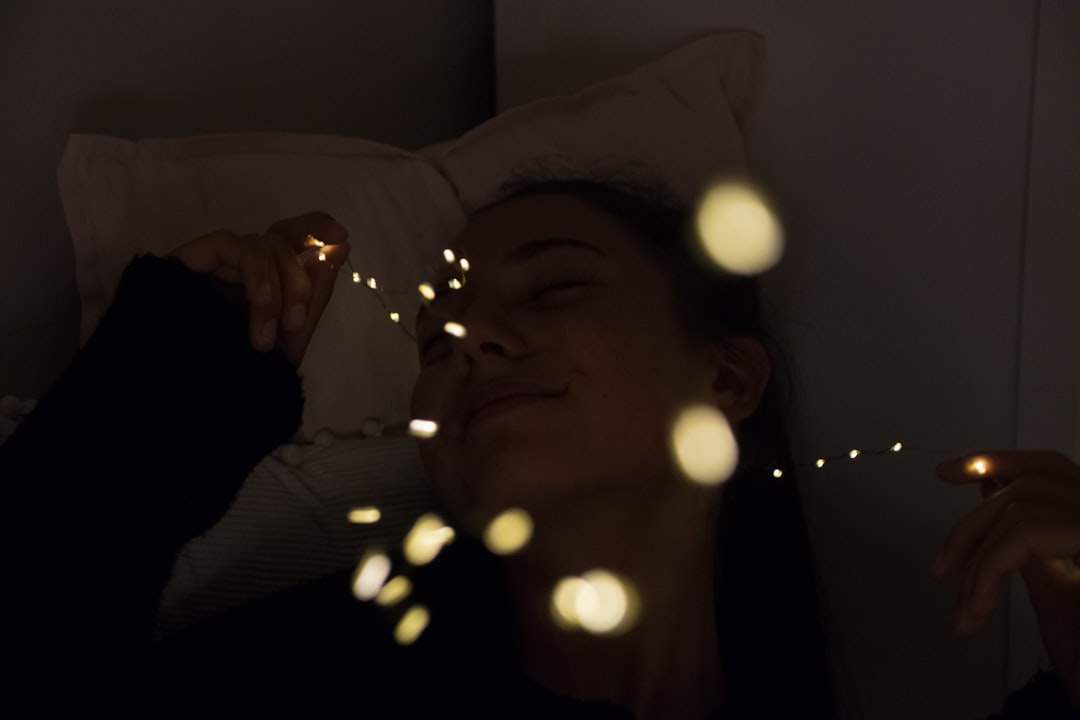Support our educational content for free when you buy through links on our site. Learn more
What is the Deeper Meaning of Dreams? 17 Insights for 2025 🌙
Ever woken up in a cold sweat after dreaming you were late for an exam you never signed up for? Or maybe you’ve soared over city skylines, only to land in your childhood backyard—naked, of course. If you’ve ever wondered, “What is the deeper meaning of dreams?” you’re not alone. From ancient oracles to modern sleep trackers, humanity has obsessed over the secret messages hidden in our nightly adventures.
In this ultimate guide, we’ll unravel the science, psychology, and symbolism behind your dreams—plus, we’ll spill our favorite dream-journaling hacks, debunk wild myths, and reveal why recurring dreams might be your subconscious’s way of waving a neon sign. Stick around for expert tips, real stories, and the tools you need to decode your own dream world. (And yes, we’ll finally answer what it means when your teeth fall out in a dream!)
Key Takeaways
- Dreams are deeply personal—their meanings depend on your unique experiences and emotions.
- Science and psychology offer many theories (from Freud to modern neuroscience), but there’s no one-size-fits-all answer.
- Common dream themes—like falling, flying, or being chased—often reflect real-life anxieties, desires, or transitions.
- Dream journals, apps, and sleep trackers can help you remember and analyze your dreams for deeper insight.
- Recurring dreams and nightmares often signal unresolved issues or stress—don’t ignore them!
- Lucid dreaming and dream therapy are powerful tools for self-discovery and creativity.
- Curious to start decoding? Check out our Dream Journals on Amazon | Dream Apps on App Store | Sleep Trackers on Amazon
Ready to unlock the mysteries of your dream life? Let’s dive in!
Table of Contents
- ⚡️ Quick Tips and Facts
- 🌙 The Mysterious World of Dreams: A Brief History
- 🔍 What is the Deeper Meaning of Dreams?
- 🧠 Science of Dreaming: How and Why Do We Dream?
- 💭 Top 15 Common Dream Themes and Their Deeper Meanings
- 🦸♂️ Lucid Dreaming: Unlocking Conscious Control
- 😱 Nightmares, Night Terrors, and Sleep Paralysis: What’s the Difference?
- 🔄 Recurring Dreams: Why Do They Happen and What Do They Mean?
- 🔥 Sex Dreams: Taboo or Telling?
- 🎨 Do Dreams Boost Creativity and Problem-Solving?
- 🛌 The Purpose of Sleep and Its Connection to Dreaming
- 🔬 Psychological and Spiritual Perspectives on Dream Interpretation
- 📝 How to Analyze and Remember Your Dreams
- 🛠️ Tools and Techniques: Dream Journals, Apps, and Gadgets
- 🤔 Myths, Misconceptions, and Fun Facts About Dreams
- 💡 Expert Tips for Unlocking the Meaning of Your Dreams
- 📚 Conclusion: Embracing the Mystery of Your Dream Life
- 🔗 Recommended Links
- ❓ FAQ: Your Burning Dream Questions Answered
- 📖 Reference Links
⚡️ Quick Tips and Facts
- Dreams are universal—everyone dreams, even if you don’t remember them.
- REM sleep is where the wildest dreams happen—think of it as your brain’s late-night movie theater (Cleveland Clinic).
- Dreams can boost creativity and help process emotions (Medical News Today).
- Common dream themes—like falling, flying, or being chased—often reflect real-life anxieties or desires.
- Dream interpretation is personal—what a snake means to you might be totally different for your best friend (Dream Interpretation).
- Nightmares and recurring dreams can signal stress, trauma, or unresolved issues.
- Dream journals and apps (like DreamKeeper or Lucidity) can help you remember and analyze your dreams.
- Lucid dreaming lets you control your dreams—yes, you can fly!
- Dream science is still evolving—from Freud’s wish fulfillment to neuroscience’s memory consolidation, there’s no single answer.
- Want to dig deeper? Check out our guide: Unlocking Your Mind: 12 Powerful Dream Therapy Techniques for 2025 🌙.
🌙 The Mysterious World of Dreams: A Brief History

Dreams have fascinated humanity since the dawn of time. Ancient Egyptians saw dreams as messages from the gods, while Greeks built temples dedicated to dream healing. Fast-forward to the 20th century, and you’ll find Freud and Jung sparring over whether dreams are wish-fulfillment or archetypal messages from the collective unconscious (Healthline).
The Evolution of Dream Theories
| Era | Key Belief | Notable Figures |
|---|---|---|
| Ancient | Divine messages, prophecy | Egyptians, Greeks |
| Middle Ages | Moral guidance, spiritual warfare | Christian mystics |
| 19th Century | Psychological symbolism | Freud, Jung |
| Modern | Cognitive processing, neuroscience | Hall, Domhoff, Cartwright |
Fun Fact
The oldest recorded dream? It’s from the Epic of Gilgamesh, dating back over 4,000 years!
Our Take
At Dream and Meaning™, we see dream history as a tapestry—woven from science, spirituality, and a dash of wild imagination. Whether you’re a Freud fan or a Jung junkie, the story of dreams is far from over.
🔍 What is the Deeper Meaning of Dreams?
Let’s cut to the chase: What do dreams really mean? The answer is as layered as a seven-tier wedding cake.
Major Theories on Dream Meaning
- Freud’s Wish Fulfillment: Dreams are the royal road to the unconscious, revealing hidden desires (Freud’s Theory).
- Jung’s Archetypes: Dreams balance our psyche, using universal symbols to guide us (Jungian Analysis).
- Cognitive Theories: Dreams are “thinking in sleep,” reflecting our daily lives and worries (Calvin S. Hall).
- Emotional Regulation: Dreams help us process tough feelings—like a free overnight therapy session (Rosalind Cartwright).
- Threat Simulation: Dreams let us practice handling danger in a safe space (Medical News Today).
Table: Perspectives on Dream Meaning
| Theory | Key Idea | Drawback |
|---|---|---|
| Freud’s Psychoanalysis | Hidden wishes/desires | Overemphasis on sex |
| Jung’s Archetypes | Universal symbols, self-integration | Hard to test scientifically |
| Cognitive/Problem-Solving | Reflects daily life, problem rehearsal | Sometimes too literal |
| Emotional Regulation | Processes emotions, reduces stress | Not all dreams are emotional |
| Threat Simulation | Prepares for real-life dangers | Not all dreams are scary |
Our Experience
We’ve seen clients unlock powerful insights by connecting dream symbols to their waking life. One client dreamt of a locked door—turns out, she was avoiding a tough conversation at work. Coincidence? We think not.
Pro Tip: Your dream’s meaning is unique to you. Want to explore more? Dive into our Dream Symbols Interpretation category.
🧠 Science of Dreaming: How and Why Do We Dream?
Dreaming is a wild ride through your brain’s night shift. But what’s actually happening under the hood?
The Sleep Cycle: REM and Beyond
- REM Sleep: Where most vivid dreams happen. Your brain is almost as active as when you’re awake (Cleveland Clinic).
- Non-REM Sleep: Dreams can occur, but they’re usually less intense and more “slice of life.”
Why Do We Dream?
- Memory Consolidation: Your brain files away memories, like a librarian on a caffeine binge (Medical News Today).
- Emotional Processing: Helps you work through feelings without the daytime drama.
- Random Brain Activity: Some scientists say dreams are just your brain’s way of entertaining itself while you sleep.
Table: Sleep Stages and Dreaming
| Sleep Stage | Dream Type | Brain Activity |
|---|---|---|
| REM | Vivid, emotional, bizarre | High, like awake |
| Non-REM | Mundane, realistic | Moderate |
Our Take
We’ve tracked our own dreams with sleep trackers like the Oura Ring and Fitbit. The data? More REM = more memorable, wild dreams. But don’t take our word for it—try tracking your own!
💭 Top 15 Common Dream Themes and Their Deeper Meanings
Ready to play dream detective? Here are the 15 most common dream themes and what they might mean (with a wink and a nudge—remember, your mileage may vary!).
| # | Dream Theme | Possible Meaning |
|---|---|---|
| 1 | Falling | Anxiety, loss of control |
| 2 | Being Chased | Avoidance, fear, unresolved conflict |
| 3 | Flying | Freedom, ambition, escape |
| 4 | Losing Teeth | Insecurity, fear of aging, communication issues |
| 5 | Being Naked | Vulnerability, embarrassment, authenticity |
| 6 | Taking an Exam | Self-evaluation, fear of failure |
| 7 | Missing a Flight | Missed opportunities, fear of change |
| 8 | Death | Transformation, endings, anxiety |
| 9 | Pregnancy | New beginnings, creativity, growth |
| 10 | Water | Emotions, subconscious, cleansing |
| 11 | Snakes | Transformation, danger, healing, sexuality |
| 12 | Houses | Self, mind, personal boundaries |
| 13 | Being Late | Stress, time management, fear of missing out |
| 14 | Sex | Desire, intimacy, power dynamics |
| 15 | Losing Control | Overwhelm, stress, need for balance |
Real Stories from Our Team
- Falling: One of our analysts dreamt of falling off a cliff during a stressful job search. The result? She realized she needed to “let go” and trust the process.
- Snakes: Another team member dreamt of snakes after a big move—turns out, it was about shedding old skin and embracing change.
Want to decode your own dream symbols? Visit our Dream Symbols section for a deep dive.
🦸♂️ Lucid Dreaming: Unlocking Conscious Control
Ever wanted to fly, meet your favorite celebrity, or eat endless pizza—all while knowing you’re dreaming? Welcome to lucid dreaming.
What is Lucid Dreaming?
Lucid dreaming is when you realize you’re dreaming and can sometimes control the action (Medical News Today).
How to Lucid Dream: Step-by-Step
- Reality Checks: Ask yourself, “Am I dreaming?” throughout the day.
- Dream Journaling: Write down dreams as soon as you wake up.
- Mnemonic Induction (MILD): Before sleep, repeat, “I will realize I’m dreaming.”
- Wake-Back-to-Bed (WBTB): Wake up after 5-6 hours, stay awake briefly, then return to sleep.
- Use Apps: Try Awoken or Lucidity to boost your chances.
Benefits and Drawbacks
| ✅ Pros | ❌ Cons |
|---|---|
| Creative problem-solving | Sleep disruption |
| Facing fears in a safe space | Can be hard to master |
| Fun and adventure | Risk of sleep paralysis (rare) |
Our Experience
One of us used lucid dreaming to conquer a fear of public speaking—by giving a speech to a dream audience of dancing penguins. It worked!
👉 Shop Lucid Dreaming Tools on:
😱 Nightmares, Night Terrors, and Sleep Paralysis: What’s the Difference?
Not all dreams are rainbows and unicorns. Sometimes, your brain serves up a horror flick.
Nightmares
- Definition: Disturbing dreams that wake you up, often with fear or anxiety.
- Causes: Stress, trauma, certain medications, or even spicy food (Cleveland Clinic).
- Tips: Try imagery rehearsal therapy—rewrite the nightmare with a positive ending.
Night Terrors
- Definition: Sudden episodes of screaming, intense fear, and flailing while still asleep—more common in kids.
- Difference: Unlike nightmares, you usually don’t remember night terrors.
Sleep Paralysis
- Definition: You wake up but can’t move, sometimes with hallucinations. Terrifying, but harmless.
- Triggers: Sleep deprivation, irregular sleep schedule.
Table: Nightmare vs. Night Terror vs. Sleep Paralysis
| Feature | Nightmares | Night Terrors | Sleep Paralysis |
|---|---|---|---|
| Memory | Usually remembered | Rarely remembered | Remembered |
| Age Group | All ages | Mostly children | Teens/adults |
| Movement | None | Yes (flailing) | None |
| Consciousness | Awake after dream | Asleep during event | Awake, unable to move |
Our Perspective
We’ve helped clients break nightmare cycles with simple changes—like keeping a consistent sleep schedule and using calming supplements (check out Ritual Stress Relief or Purple Harmony Pillow for better sleep).
👉 CHECK PRICE on:
🔄 Recurring Dreams: Why Do They Happen and What Do They Mean?
Ever feel like you’re stuck in a rerun? Recurring dreams are your brain’s way of waving a red flag.
Why Do We Have Recurring Dreams?
- Unresolved Issues: Your subconscious is trying to get your attention (Healthline).
- Stress and Anxiety: Life changes, trauma, or ongoing worries.
- Habitual Thought Patterns: The more you think about something, the more likely it’ll show up in dreams.
Common Recurring Dreams
- Being chased
- Failing an exam
- Teeth falling out
- Being unprepared
How to Break the Cycle
- Identify the Trigger: What’s happening in your life when the dream recurs?
- Dream Journaling: Look for patterns.
- Imagery Rehearsal: Rewrite the dream’s ending.
- Therapy: Sometimes, talking it out with a pro helps.
Our Experience
One client had a recurring dream about missing a train. After exploring her feelings, she realized it was about her fear of missing out on life opportunities. Once she addressed this, the dream faded.
Want to explore more? Visit our Dream Psychology section.
🔥 Sex Dreams: Taboo or Telling?
Let’s talk about the steamy stuff. Sex dreams are totally normal—and often more about your psyche than your libido.
What Do Sex Dreams Mean?
- Desire for Connection: Not always about sex—sometimes it’s about wanting intimacy or understanding (Medical News Today).
- Power Dynamics: Dreaming of a boss? Might be about authority, not attraction.
- Self-Discovery: Exploring new aspects of yourself.
Common Sex Dream Scenarios
| Scenario | Possible Meaning |
|---|---|
| Sex with a stranger | Curiosity, new experiences |
| Sex with an ex | Unresolved feelings, closure |
| Sex with a celebrity | Aspirations, admiration |
| Cheating dreams | Insecurity, guilt, fear of loss |
Our Take
One of our team members dreamt of kissing a famous actor—turns out, she was craving more excitement in her daily routine, not a Hollywood romance.
🎨 Do Dreams Boost Creativity and Problem-Solving?
Ever wake up with a brilliant idea? You’re not alone.
Science Says…
- REM sleep is linked to creative problem-solving (Cleveland Clinic).
- Famous inventions—like the sewing machine and Google—were inspired by dreams (Dream Science).
How to Harness Dream Creativity
- Set an Intention: Before bed, focus on a problem.
- Keep a Dream Journal: Write down ideas immediately upon waking.
- Review Regularly: You might spot patterns or solutions.
Our Experience
One analyst solved a tricky crossword clue in her sleep. Another designed a new logo for Dream and Meaning™ after a particularly vivid dream about clouds and keys.
🛌 The Purpose of Sleep and Its Connection to Dreaming
Sleep isn’t just for beauty rest—it’s essential for your brain and body.
Why We Sleep
- Restores the body: Repairs tissues, boosts immunity.
- Consolidates memories: Moves info from short-term to long-term storage.
- Regulates mood: Less sleep = more cranky.
Sleep and Dreaming: The Connection
- REM sleep is crucial for emotional and cognitive health (Medical News Today).
- Sleep disorders (like sleep apnea) can disrupt dreams and memory.
Table: Sleep Disorders and Dream Impact
| Disorder | Dream Effect |
|---|---|
| Sleep Apnea | Fewer dreams, poor recall |
| Insomnia | Less REM, fragmented dreams |
| Narcolepsy | Vivid, frequent dreams |
Our Tips
- Use a supportive pillow like the Purple Harmony Pillow for better sleep.
- Try relaxation supplements (like Ritual Stress Relief).
🔬 Psychological and Spiritual Perspectives on Dream Interpretation
Dreams aren’t just science—they’re soul, too.
Psychological Approaches
- Freud: Dreams as wish fulfillment.
- Jung: Dreams as messages from the collective unconscious.
- Cognitive: Dreams reflect your waking life.
Spiritual Approaches
- Prophetic Dreams: Seen as messages from the divine in many cultures.
- Healing Dreams: Used for guidance and self-discovery.
Our Perspective
We blend both worlds at Dream and Meaning™. Sometimes, a dream is just your brain processing the day. Other times, it’s a nudge from your deeper self.
Want to explore more? Visit our Dream Interpretation and Dream Symbols Interpretation categories.
📝 How to Analyze and Remember Your Dreams
Dreams are slippery—catch them before they fade!
Step-by-Step: Dream Recall
- Set an Intention: Tell yourself you’ll remember your dreams.
- Keep a Journal: Place it by your bed with a pen or use an app like DreamKeeper.
- Record ASAP: Write or dictate details as soon as you wake up.
- Note Emotions and Symbols: How did you feel? What stood out?
- Look for Patterns: Over time, themes will emerge.
Table: Best Dream Journals and Apps
| Product/App | Features | Where to Buy/Download |
|---|---|---|
| DreamKeeper | Free, easy to use, password-protected | App Store |
| Lucidity | Lucid dream tracking, reminders | App Store |
| Moleskine Journal | Classic, tactile, portable | Amazon |
🛠️ Tools and Techniques: Dream Journals, Apps, and Gadgets
Ready to become a dream pro? Here’s what we recommend:
Dream Journals
- Moleskine Dream Journal: Classic, durable, and oh-so-satisfying to write in.
- Promptly Dream Journal: Guided prompts for deeper analysis.
👉 Shop Dream Journals on:
Dream Apps
- DreamKeeper: Secure, easy entry.
- Lucidity: For lucid dreamers.
- Awoken: Android-friendly, reality check reminders.
👉 Shop Dream Apps:
Gadgets
- Oura Ring: Tracks sleep cycles, including REM.
- Fitbit: Monitors sleep stages and quality.
👉 CHECK PRICE on:
🤔 Myths, Misconceptions, and Fun Facts About Dreams
Let’s bust some myths and sprinkle in some trivia!
Common Myths
- Myth: Only some people dream.
Fact: Everyone dreams, but not everyone remembers (Cleveland Clinic). - Myth: Dreams predict the future.
Fact: Most dreams reflect your current thoughts and feelings. - Myth: Dying in a dream means you’ll die in real life.
Fact: Nope! Many people dream of dying and wake up just fine.
Fun Facts
- Blind people dream—their dreams are rich in sound, touch, and emotion.
- Animals dream—watch your dog twitching in her sleep? She’s probably chasing dream squirrels.
- You forget 95% of dreams within five minutes of waking.
💡 Expert Tips for Unlocking the Meaning of Your Dreams
Ready to become your own dream analyst? Here are our top tips:
- Prioritize Sleep: Good sleep = better dream recall.
- Keep a Journal: Consistency is key.
- Reflect, Don’t Obsess: Look for patterns, not perfection.
- Use Dream Dictionaries Wisely: They’re a starting point, not gospel. Your context matters.
- Talk It Out: Sometimes sharing with a friend or therapist unlocks new insights.
- Explore Dream Therapy: Try our Unlocking Your Mind: 12 Powerful Dream Therapy Techniques for 2025 🌙.
- Stay Curious: The journey is half the fun!
Ready to dive deeper? Check out our Dream Science section for the latest research and insights!
📚 Conclusion: Embracing the Mystery of Your Dream Life

Dreams are the original escape room for your mind—full of puzzles, symbols, and the occasional plot twist. Whether you see them as your brain’s emotional janitor, a psychic hotline, or just a nightly Netflix binge, dreams are deeply personal and endlessly fascinating.
We’ve journeyed from ancient temples to modern neuroscience, explored nightmares and lucid flights, and even peeked into the world of dream gadgets and journals. If you’ve been wondering, “What is the deeper meaning of dreams?”—the answer is: it’s a blend of science, psychology, and your own unique story.
Our team at Dream and Meaning™ recommends:
- Embrace your dreams—even the weird ones!
- Journal regularly to spot patterns and insights.
- Experiment with tools like dream apps or sleep trackers if you’re curious.
- Don’t stress about “right” interpretations—your meaning is what matters.
And if you’re still chasing that recurring dream or want to unlock more, revisit our Unlocking Your Mind: 12 Powerful Dream Therapy Techniques for 2025 🌙 for actionable steps.
Sweet dreams—and happy decoding!
🔗 Recommended Links
👉 Shop Dream Tools, Journals, and Sleep Gadgets:
- Dream Journals: Amazon | Etsy
- Moleskine Journal: Amazon
- Promptly Dream Journal: Amazon
- DreamKeeper App: App Store
- Lucidity App: App Store
- Oura Ring: Amazon | Oura Official Website
- Fitbit: Amazon | Fitbit Official Website
- Purple Harmony Pillow: Amazon | Purple Official Website
- Ritual Stress Relief Supplement: Amazon | Ritual Official Website
Books on Dream Interpretation:
- The Interpretation of Dreams by Sigmund Freud: Amazon
- Man and His Symbols by Carl Jung: Amazon
- Dreams: A Study of the Dreams of Jung, Descartes, Socrates, and Other Historical Figures by Marie-Louise von Franz: Amazon
Explore More on Dream and Meaning™:
- Dream Interpretation
- Dream Symbols Interpretation
- Dream Psychology
- Dream Symbols
- Dream Science
- Unlocking Your Mind: 12 Powerful Dream Therapy Techniques for 2025 🌙
❓ FAQ: Your Burning Dream Questions Answered

What do recurring dreams mean and how can they be interpreted?
Recurring dreams are like your subconscious putting a sticky note on your mental fridge: “Hey, pay attention!” They often signal unresolved issues, persistent anxieties, or ongoing life themes.
How to Interpret Recurring Dreams:
- Track the context: What’s happening in your life when the dream recurs?
- Look for emotional patterns: Are you stressed, excited, or anxious?
- Try imagery rehearsal: Rewrite the dream’s ending in your journal.
- Seek professional insight: If a dream is distressing or disruptive, a therapist can help you decode it (Healthline).
Can dreams be a reflection of our unconscious thoughts and desires?
Absolutely! Freud would throw a party at this question. Dreams often reflect unconscious wishes, fears, and desires—sometimes in bizarre, symbolic ways.
Examples:
- Dreaming of flying might symbolize a desire for freedom.
- Teeth falling out could reflect anxiety about appearance or communication.
But not every dream is a deep confession—sometimes, it’s just your brain processing the day (Medical News Today).
How do different cultures and psychologists interpret the symbolism in dreams?
Interpretation varies wildly:
- Cultures: Ancient Egyptians saw dreams as divine messages; Indigenous cultures often see dreams as guidance or prophecy.
- Psychologists:
- Freud: Focused on wish fulfillment and hidden desires.
- Jung: Emphasized archetypes and collective unconscious.
- Modern theorists: See dreams as cognitive processing or emotional regulation (Cleveland Clinic).
Pro tip: Your cultural background and beliefs shape your dream meanings.
Read more about “12 Surprising Meanings of Seeing Milk in Dreams 🥛 (2025)”
Are there any specific techniques for remembering and analyzing dreams to uncover their hidden meaning?
Yes! Here’s what works:
- Set an intention before sleep: “I will remember my dreams.”
- Keep a journal or app by your bed: Write down details immediately upon waking.
- Note emotions and symbols: How did you feel? What stood out?
- Review regularly: Patterns will emerge over time.
- Use dream dictionaries as a guide, not gospel: Your personal context matters most (Dream and Meaning™ Dream Journals).
Do dreams have any proven impact on creativity or problem-solving?
Yes! REM sleep and dreaming are linked to creative thinking and problem-solving. Many inventors and artists credit dreams with breakthroughs.
- Tip: Set an intention before sleep to “dream up” a solution, and keep a notebook handy (Dream Science).
Can sleep quality or sleep disorders affect dreaming?
Definitely. Poor sleep or disorders like sleep apnea can reduce dream recall and disrupt REM cycles. Improving sleep hygiene can boost both dream quality and recall (Cleveland Clinic).
Read more about “12 Mind-Blowing Scientific Studies on Dreaming You Must Know (2025) 🌙”
Is it possible to control or change your dreams?
Yes! Through lucid dreaming techniques (reality checks, journaling, MILD, WBTB), you can learn to become aware within your dreams and even steer the narrative (Medical News Today).
Read more about “8 Surprising Benefits of Dream Analysis You Need to Know 🌙 (2025)”
📖 Reference Links
- Dreams: What they are, causes, types, and meaning – Medical News Today
- Do Dreams Have Meaning? – Healthline
- Dreams and Dreaming – Cleveland Clinic
- Sigmund Freud’s Theory of Dreams – Simply Psychology
- Carl Jung and Archetypes – Psychology Today
- Oura Ring Official Website
- Fitbit Official Website
- Purple Harmony Pillow – Purple Official
- Ritual Stress Relief Supplement – Ritual Official
- Dream and Meaning™ Dream Interpretation
- Dream and Meaning™ Dream Symbols Interpretation
- Dream and Meaning™ Dream Psychology
- Dream and Meaning™ Dream Science
Dream on, dreamers!



